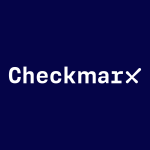I use GitHub and the products from its integration partners, which include SOAR platforms, ServiceNow integrations, IBM integrations, Splunk integrations, and much more.
I use the solution in my company for code management and platform management purposes.
GitHub's features are more in a module and package format. It is always good to keep your repositories in one place so that other people or your team members can access them. If people leave and some new team members join the company, then they can be trained to use the product.
As a customer, I feel that there are certain gray areas associated with technical support where improvements are required. The support team needs to have a well-defined SLA model since it is an area where the tool currently has some shortcomings. The tool's support team is responsive. I get responses from the tool's support team whenever I ask them any questions. The ability to let users manage the SLA system can be an area that needs to be updated in the product.
I have fourteen years of experience with GitHub. My company has a partnership with GitHub.
Stability-wise, I rate the solution a nine and a half out of ten.
Though I currently don't face any issues related to scalability, there are a lot of areas in GitHub where support is required. The current workforce dealing with the product is smart. In the current era, it is possible to get all the information through different sites, apps, mobile devices, and even YouTube. Rather than raising a support request with GitHub, the new workforce goes through the product's user manual and YouTube to find a fix to their problems.
In my previous organization, there were around 1,500,000 to 1,600,000 employees who used to use the product.
I rate the technical support an eight and a half out of ten.
The product's initial setup phase is easy but it is always good to connect with GitHub's team that manages APIs. If you are paying for the solution, you have the right to get support from the consultant because they bill you for one hour of availability irrespective of the platform's costs.
During the initial days of usage, there won't be any cost savings possible with GitHub. Once more people start using the product in your company, then you will start to experience the cost saving benefits from the tool.
If I consider the market standards, the product's price is pocket-friendly.
With fourteen years of experience with the product, I don't think I would face any challenges with it. For new users, it would be good if they could gather a detailed overview to understand the solution, and they could get information from YouTube or other social media platforms. I suggest that new users learn how to manage the product's setup phase. It is better to indulge in some self-study and do the homework, and parallelly consider using the support system offered by GitHub to learn about the product.
I have an experience with one of the Big Four companies, EY, where GitHub is used frequently.
I have already recommended the product to multiple clients, including PepsiCo, Kellog, Procter & Gamble, Bank of America, and Citibank. Sometimes, you have to manage all your codes locally, but it would be great to have everything managed on the cloud. As my company has been managing codes with GitHub for a long time, I always practice with the tool and get trained to figure out good ways in which certain things can be done with the product. I feel that there is a need to encourage people to use the product, and it can be a healthy thing since it will be possible for people in an organization to delete the local file once someone leaves the company, and it can be done at a global level.
My company plans to start the AI development project in one of the upcoming quarters. GitHub is the technical platform from which we cannot expect more, but we can race a request with the support team and tell them about our company's expectations and inform them that we need their help to deal with the AI model in the solution. If my organization plans to use the AI part, I cannot force GitHub to help me, but I will check to the extent to which I can receive help from the tool's support team. If I am developing some new model with the help of AI, then it is my responsibility to bridge the gap by considering factors at a solution level. I believe in always going for an approach involving a handshake with the technology partners and service partners.
During the initial days of usage, there won't be any cost savings possible with GitHub.
I rate the solution a nine and a half out of ten.
























